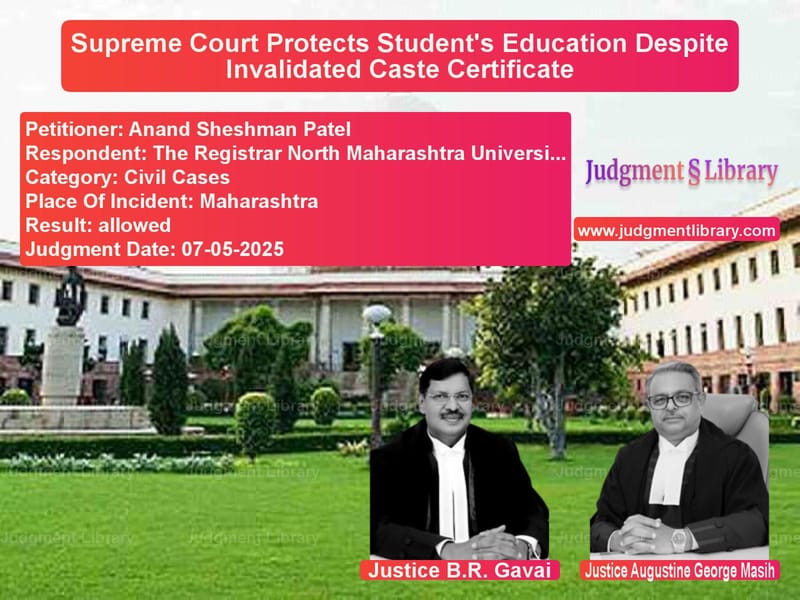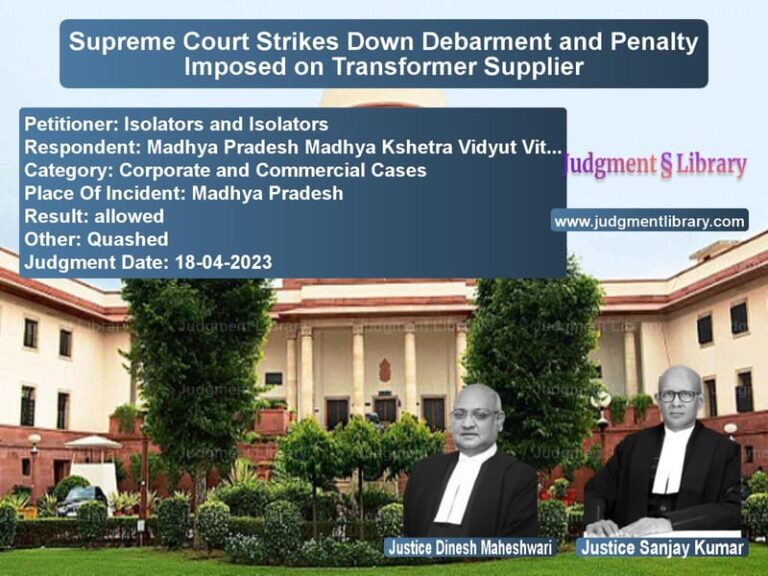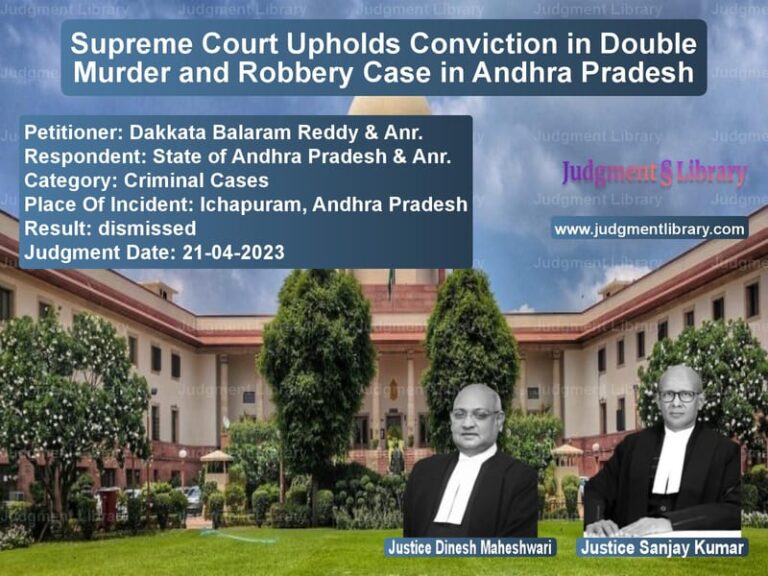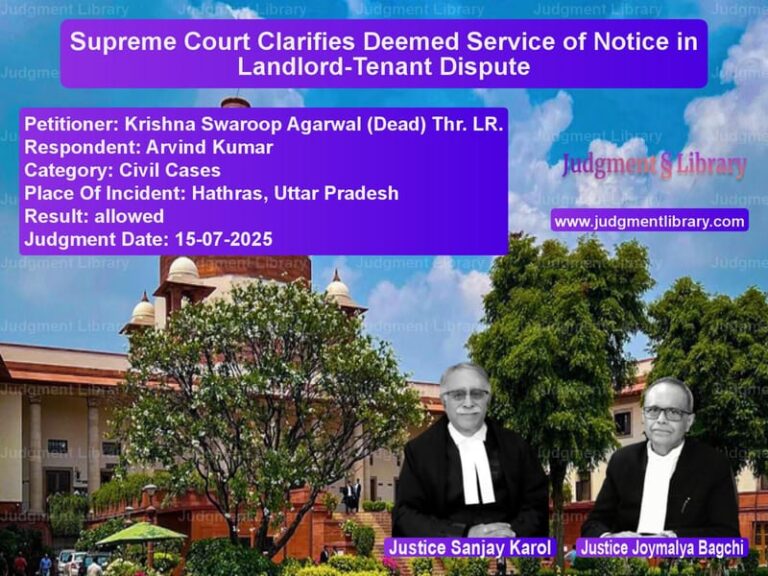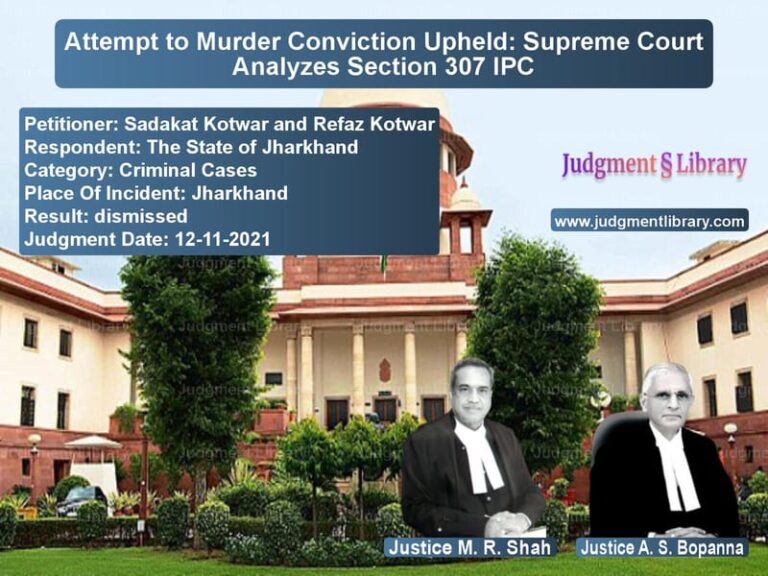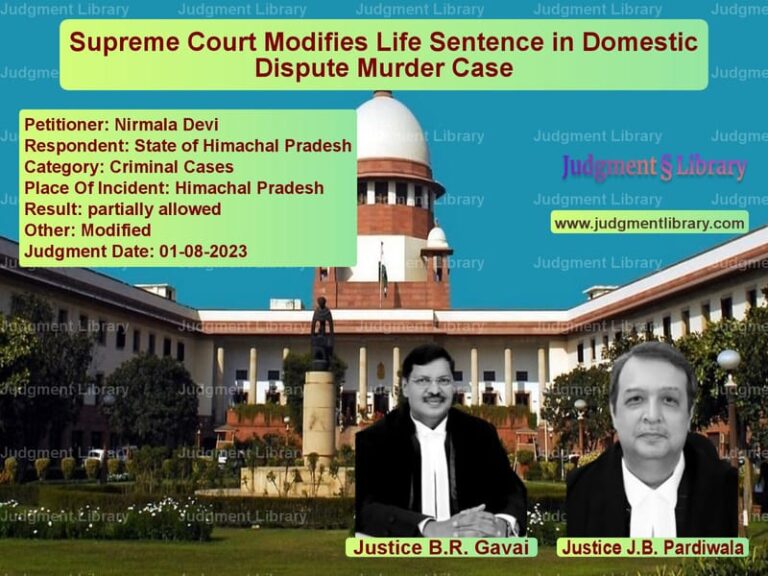Supreme Court Protects Student’s Education Despite Invalidated Caste Certificate
In a significant ruling that balances administrative accountability with educational aspirations, the Supreme Court of India recently delivered a judgment that protected a student’s completed education while clarifying he would receive no future benefits from the caste category he was wrongly admitted under. The case involved Anand Sheshman Patel, who had pursued a B.Tech degree under the OBC quota, only to have his caste certificate invalidated years later, after he had completed his course.
The story begins when Anand Patel, claiming to belong to the Kunbi caste falling under the Other Backward Class (OBC) category, applied for and secured admission in a B.Tech (Chemical Engineering) program at a college in Maharashtra. His admission was against a seat specifically reserved for OBC candidates. As per the standard procedure, his caste certificate was sent for verification to the Scrutiny Committee in 2015. What should have been a routine check turned into a long-drawn ordeal, as the committee failed to decide on his claim for years.
Frustrated by the delay, which stretched to two years, Patel was forced to approach the High Court of Judicature at Bombay in 2017. The Division Bench of the High Court, in its order dated February 10, 2020, noted a troubling fact: despite the passage of time, during which Patel had even appeared for his final year examinations, the Scrutiny Committee had still not concluded its verification. The High Court did not mince words in criticizing the committee’s inaction. It directed the committee to decide the claim within a stipulated time and, importantly, imposed a cost of Rs. 75,000 on the three members of the Scrutiny Committee, to be paid to Patel. This cost was a clear indictment of what the court termed their “callous attitude.”
Despite this judicial intervention, the eventual outcome was unfavorable for Patel. The Scrutiny Committee proceeded to invalidate his caste claim. This created a new crisis: the university and college refused to release his mark sheets and degree certificate, essentially holding his academic credentials hostage. Left with no other recourse, Patel once again turned to the judiciary, this time filing a writ petition at the Aurangabad Bench of the Bombay High Court. However, his plea was rejected. The High Court, in its impugned order dated June 25, 2024, reasoned that since Patel’s OBC claim had been invalidated, he was not entitled to the relief of having his documents released, as his original admission itself was now under a cloud.
Aggrieved by this decision, Patel approached the Supreme Court. The apex court, in a hearing where the respondents—The Registrar, North Maharashtra University and the College—did not appear despite service of notice, took a compassionate and pragmatic view of the situation. A bench comprising Justices B.R. Gavai and Augustine George Masih heard the arguments presented by the appellant’s counsel, Ms. Shilpa Giratkar.
The Supreme Court’s reasoning was rooted in the peculiar facts and circumstances of the case. The judges noted the initial and significant delay caused by the Scrutiny Committee. They emphasized that Patel had applied for verification in 2015, but the committee did not decide it within a reasonable time, forcing him to seek the High Court’s intervention. The Court specifically recalled the High Court’s earlier observation and the imposed costs, highlighting the administrative failure that set the stage for the subsequent complications.
The most critical part of the Supreme Court’s judgment was its focus on protecting the education that Patel had already undertaken and completed. The Court stated verbatim: “In the peculiar facts and circumstances, as the appellant has already completed his course, we find that the education undertaken by the appellant herein deserves to be protected.” This principle formed the cornerstone of their decision. The Court recognized that withholding his degree and mark sheets after he had invested years in the course and successfully completed it would be an unduly harsh penalty, especially considering the initial delay was not his fault.
However, the Court was also careful to balance this relief with the need to uphold the integrity of the reservation policy. It made an unequivocal clarification to ensure that its order would not be misused as a precedent for bypassing caste verification. The judgment explicitly states: “We, however, clarify that the appellant would hereinafter not be entitled to any of the benefits as are available to the members of OBC Category.” This meant that while Patel could keep his degree, he could not claim any future benefits—such as in government jobs or higher education—that are reserved for OBC candidates.
Ultimately, the Supreme Court allowed the appeal and set aside the High Court’s order. It directed the respondents to release Patel’s mark sheets and degree certificate within four weeks. The Court concluded by explicitly stating that this order was passed “in the peculiar facts and circumstances of the case and the same would not be treated as a precedent.” This final clarification was crucial to prevent a flood of similar claims, ensuring that the judgment is seen as a unique solution for a case marked by exceptional administrative delay rather than a general relaxation of the rules for caste-based reservations.
This judgment is a nuanced example of the judiciary’s role in delivering substantive justice. It acknowledges the life-altering value of education and protects a citizen’s investment of time and effort when the system itself is partly to blame for the predicament. At the same time, it firmly upholds the rule of law and the sanctity of reservation policies, ensuring that its compassion does not create a loophole for exploitation. The story of Anand Patel is a reminder of the human cost of administrative lethargy and the courts’ capacity to provide a fair remedy where the executive machinery fails.
Petitioner Name: Anand Sheshman Patel.Respondent Name: The Registrar North Maharashtra University and Another.Judgment By: Justice B.R. Gavai, Justice Augustine George Masih.Place Of Incident: Maharashtra.Judgment Date: 07-05-2025.Result: allowed.
Don’t miss out on the full details! Download the complete judgment in PDF format below and gain valuable insights instantly!
Download Judgment: anand-sheshman-patel-vs-the-registrar-north-supreme-court-of-india-judgment-dated-07-05-2025.pdf
Directly Download Judgment: Directly download this Judgment
See all petitions in Education Related Cases
See all petitions in Reservation Cases
See all petitions in Judgment by B R Gavai
See all petitions in Judgment by Augustine George Masih
See all petitions in allowed
See all petitions in supreme court of India judgments May 2025
See all petitions in 2025 judgments
See all posts in Civil Cases Category
See all allowed petitions in Civil Cases Category
See all Dismissed petitions in Civil Cases Category
See all partially allowed petitions in Civil Cases Category

